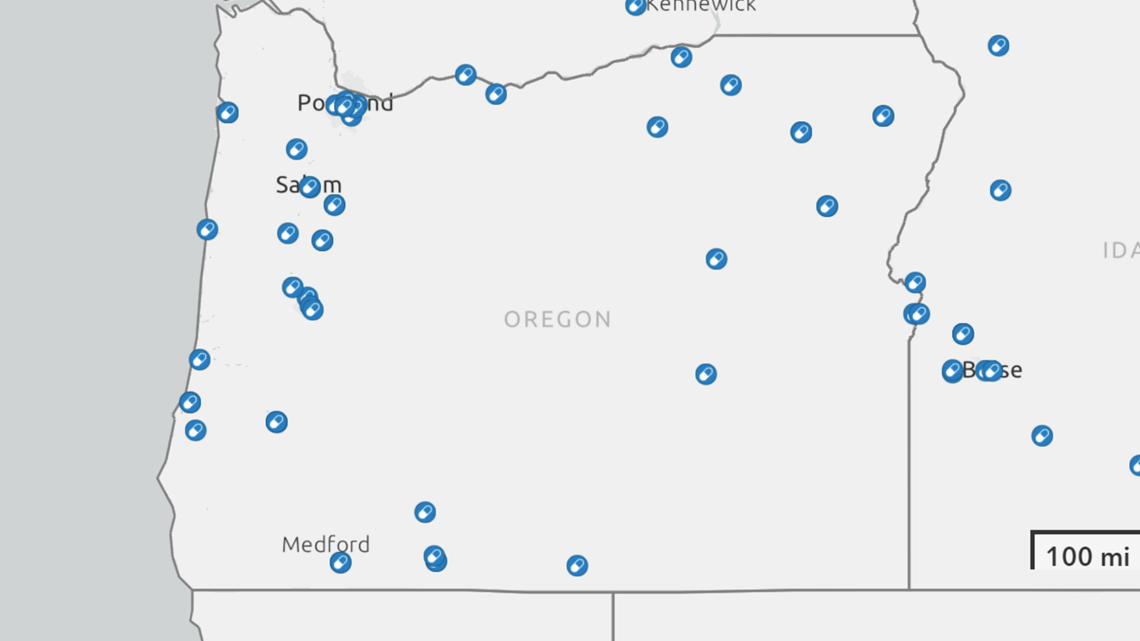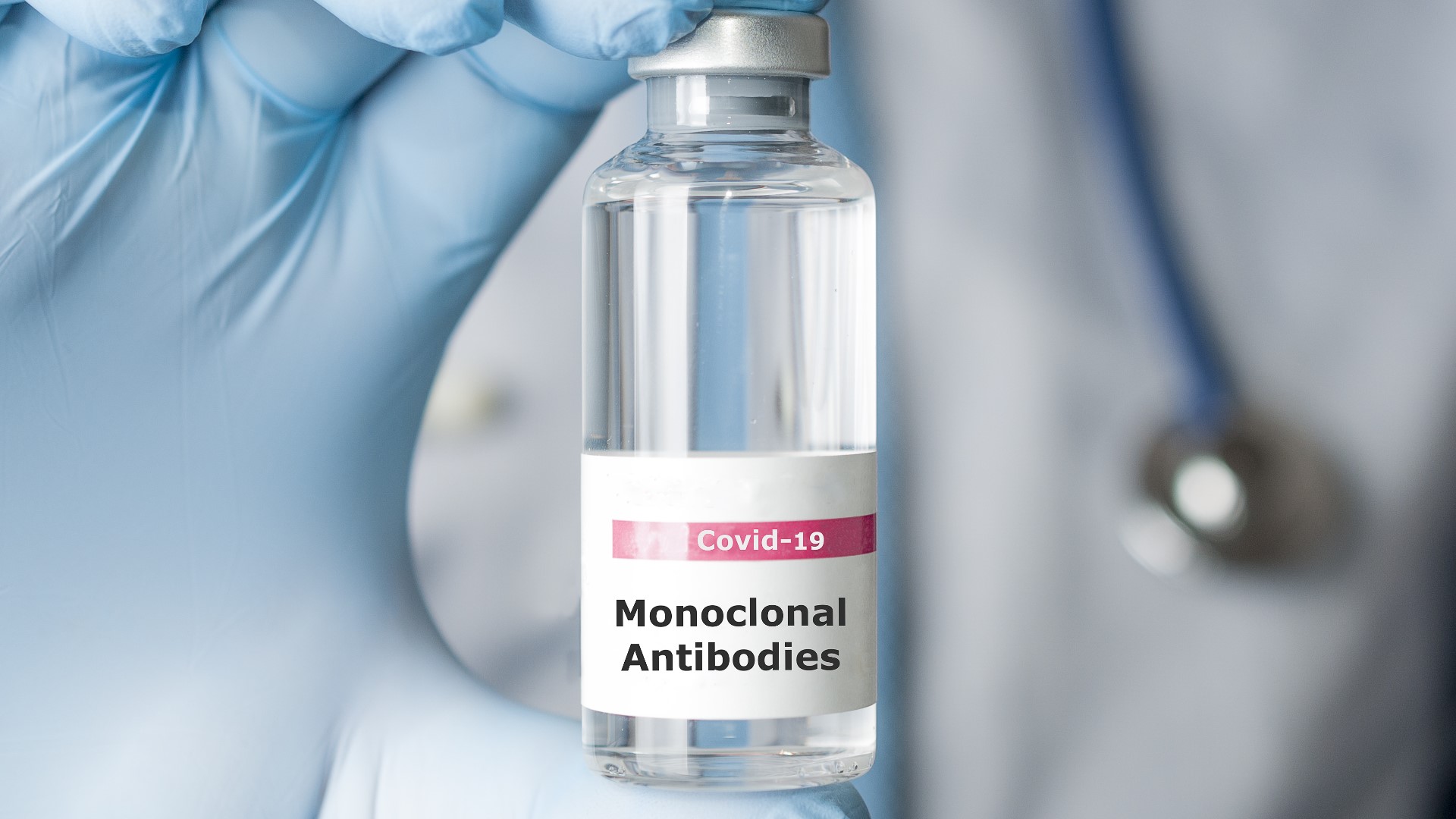PORTLAND, Ore. — Hospitals in Oregon, Washington and across the country are using monoclonal antibody treatment to keep high risk COVID patients out of the hospital.
According to the U.S. Food and Drug Administration, monoclonal antibodies are laboratory-made proteins that mimic the immune system’s ability to fight off harmful antigens such as viruses.
The FDA granted emergency use authorization for the treatment back in May. The authorization approves the use of monoclonal antibodies for adults and pediatric patients older than 12 years old who are at a high risk of being hospitalized or dying from COVID.
“With the authorization of this monoclonal antibody treatment we are providing another option to help keep high risk patients with COVID-19 out of the hospital,” said Dr. Patrizia Cavazzoni, director of the FDA’s Center for Drug Evaluation and Research.
According the Oregon Health Authority, at least 30 hospitals in Oregon are offering the treatment to patients. So far, it appears to be working.
“It does appear that this treatment does what it's supposed to do, which is keep people from getting so sick that they need to go to the emergency room or the hospital,” said Dr. Morgan Hakki, Interim Head of the Division of Infectious Diseases at OHSU and the Vice Chair for Clinical programs for OHSU’s Department of Medicine.
Dr. Hakki said this is not a preventative treatment and is only intended for people who have COVID, or in some cases, immunocompromised people directly exposed to COVID.
OHSU has treated more than 120 COVID patients with monoclonal antibodies. Most of the treatments were given over the last six weeks during the surge brought on by the delta variant.
Typically, the treatment is given through an intravenous infusion administered by a nurse. However, since June, the treatment can be given subcutaneously in the form of an injection under the skin..
Experts think more hospital systems and clinics may be able to offer monoclonal antibody therapy now that a nurse is no longer needed to administer the treatment.
“What we're hoping is that this type of formulation specifically will actually make it more possible for more types of settings to start ordering and administering product, just because it doesn't require nurses who are in shorter and shorter supply,” said Dr. Shimi Sharief, a senior health advisor with the Oregon Health Authority.
Where to get monoclonal antibody treatment
Salem Health was one of the first health care systems in Oregon to offer the treatment to high risk patients last December. It's done more than 400 infusions and found 70% of those patients did not need to go to the hospital, similar to the data in clinical trials.
Legacy Health just started a pilot program where COVID patients drive up and get the monoclonal antibody treatment as an injection.
“We're doing it outside with patients in their cars so they can be observed safely and not pose any risks to staff or each other or other people around them because they have known COVID," said Dr. Nick Kashey, Interim Vice President of Population Health at Legacy Health.


Kaiser Permanente said it's also offering the monoclonal antibody treatment to high risk patients, like those undergoing chemotherapy.
Providence Portland said the treatment is not yet available on demand and receiving it requires a referral from a physician. PeaceHealth Southwest said it could start offering the treatment to patients as soon as this week.
Hospitals are not the only facilities offering the treatment in Oregon and Washington.
According to the U.S. Department of Health and Human Services, 48 hospitals, pharmacies and clinics in Oregon have received shipments of monoclonal antibodies.
Complete List: Clinics in Oregon that have received monoclonal antibodies
Interactive Map: National map shows locations that have received shipments of monoclonal antibody therapeutics
But again, each facility has different rules or criteria for getting it.
Dr. Sharief with OHA said the treatment is available to order for free by health care systems.
“It is very available to order and the federal government is currently sitting on a surplus. There's no limitations on the number of doses that you can order as well as the number of times that you can order,” said Dr. Sharief.
And although the treatment cannot prevent COVID infection like the vaccines, it may prevent a trip to the hospital
“The only way we're fundamentally going to be able to control this whole pandemic is if we do add multiple layers of protection and prevention and treatment and that includes everything from masking, hand washing, social distancing, vaccines, and yes, the monoclonal antibody is a piece of the treatment,” said Dr. Kashey.

